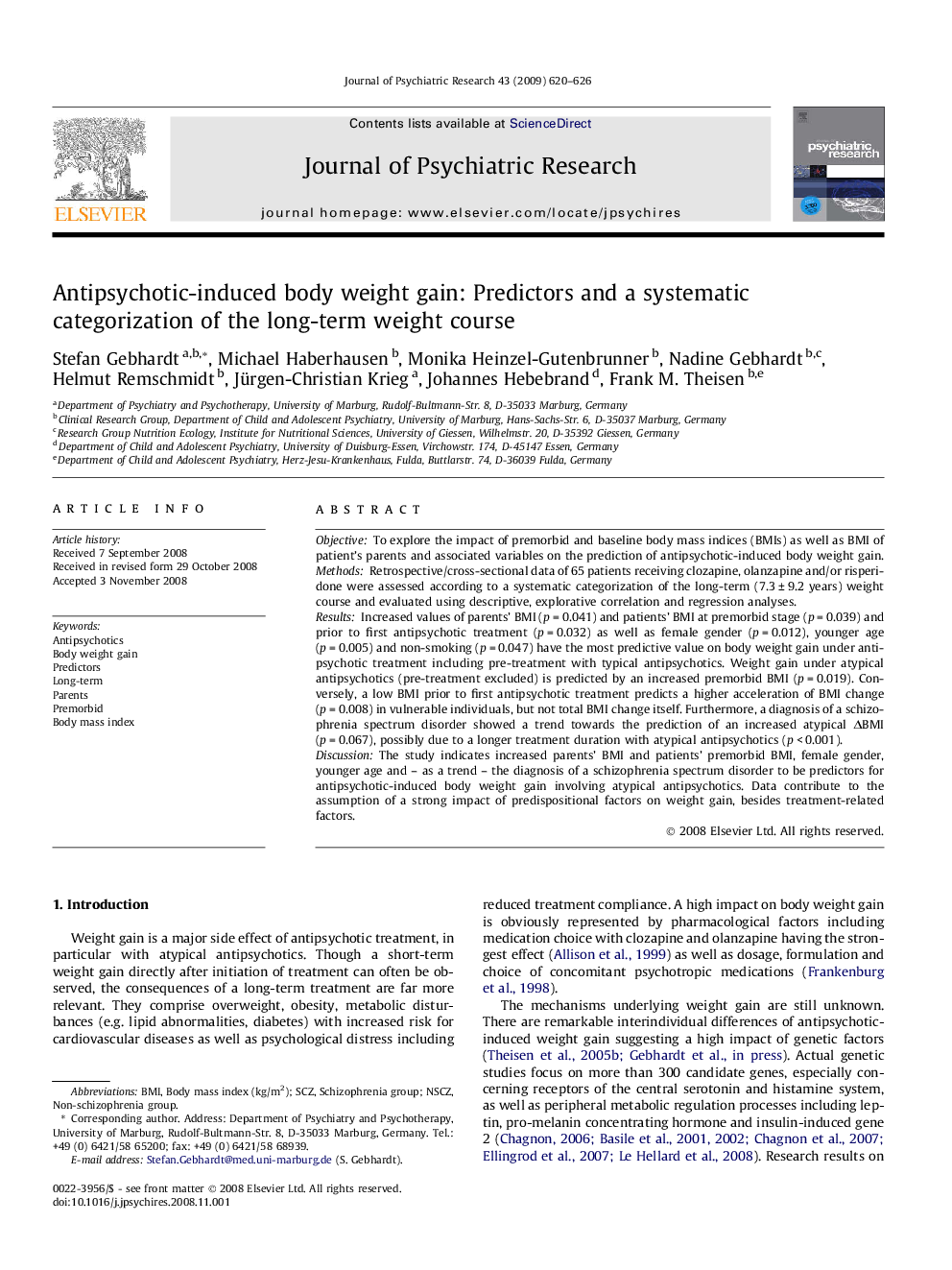| Article ID | Journal | Published Year | Pages | File Type |
|---|---|---|---|---|
| 326685 | Journal of Psychiatric Research | 2009 | 7 Pages |
ObjectiveTo explore the impact of premorbid and baseline body mass indices (BMIs) as well as BMI of patient’s parents and associated variables on the prediction of antipsychotic-induced body weight gain.MethodsRetrospective/cross-sectional data of 65 patients receiving clozapine, olanzapine and/or risperidone were assessed according to a systematic categorization of the long-term (7.3 ± 9.2 years) weight course and evaluated using descriptive, explorative correlation and regression analyses.ResultsIncreased values of parents’ BMI (p = 0.041) and patients’ BMI at premorbid stage (p = 0.039) and prior to first antipsychotic treatment (p = 0.032) as well as female gender (p = 0.012), younger age (p = 0.005) and non-smoking (p = 0.047) have the most predictive value on body weight gain under antipsychotic treatment including pre-treatment with typical antipsychotics. Weight gain under atypical antipsychotics (pre-treatment excluded) is predicted by an increased premorbid BMI (p = 0.019). Conversely, a low BMI prior to first antipsychotic treatment predicts a higher acceleration of BMI change (p = 0.008) in vulnerable individuals, but not total BMI change itself. Furthermore, a diagnosis of a schizophrenia spectrum disorder showed a trend towards the prediction of an increased atypical ΔBMI (p = 0.067), possibly due to a longer treatment duration with atypical antipsychotics (p < 0.001).DiscussionThe study indicates increased parents’ BMI and patients’ premorbid BMI, female gender, younger age and – as a trend – the diagnosis of a schizophrenia spectrum disorder to be predictors for antipsychotic-induced body weight gain involving atypical antipsychotics. Data contribute to the assumption of a strong impact of predispositional factors on weight gain, besides treatment-related factors.
